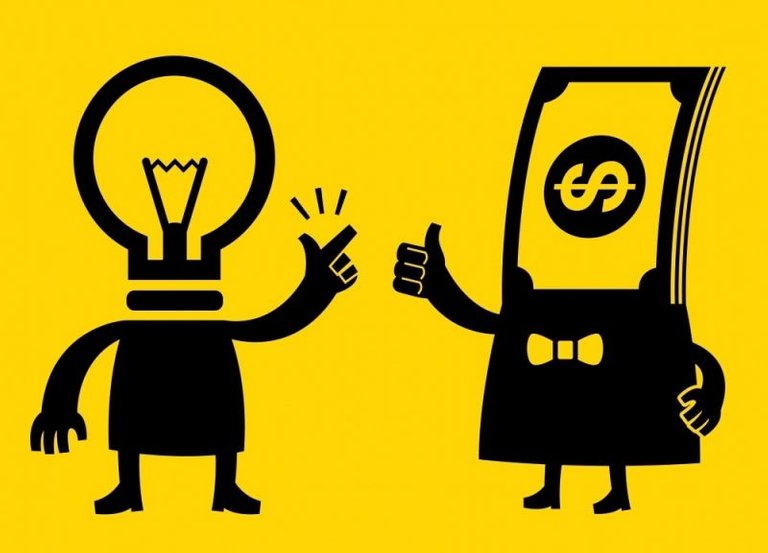Like smartphones changed the way we used our phones, cryptocurrencies are going to change the way we interact with money, and not only.
The major problem with money is ( was ) the double spending. As you can imagine, it would be a huge disaster if everyone could print money and use them for exchange of services and goods. Therefore governments solved this problem by creating banks, facilities that would issue money that we could all trust -as they where owned by the government which government was voted by us. Banks have the power to print, store, and to even loan us money with interest.
And all these would have worked perfectly, assuming that there is no corruption, though as we would all agree, corruption is in human nature. At the beginning the system was working perfectly, but the increased demand for goods and services would raise the price of the market. This is the term of inflation, which means rise of the price of goods, making the purchase power smaller.
Example: Assuming that every day you earn 20$, and a bottle of milk costs 0.50$. Increased demand for milk would rise the price of milk to 0.70$, and that would mean less buying power as you would still earn the same.
Economists believed that this could be solved by printing more money, but though printing more money would solve the problem temporally, it would not solve it permanently. Then banks would print money in order to supply loans from money that they did not had at the first place, ending up in the todays situation. A global disaster.

Today...
It was in 2009 when an unknown person -or quite possibly a group, with the pseudonym of Satoshi Nakamoto introduced Bitcoin. Bitcoin solved the major problem that we had with money.
- Double spending.
Using SHA-256, a cryptographic hash function that can control the creation of additional units of the currency, Bitcoin - and all the other cryptocurrencies that followed after it, is a digital asset that for the first time in human history worked successfully as a medium of exchange without the need of a central bank.
Now, we arrived to a point where we do not need banks any more. As Bitcoin is a digital asset, we can store it in our devices, such as phones or laptops, making the need of a bank useless. Even loaning money is possible, as there are services that can help you loan bitcoins from people that can lend.
People realised the potential of decentralisation and created smart contract platforms like Ethereum, Stratis and Waves, and on top of those platforms, thousand of decentralised platforms where created, platforms that are bringing us new ways of doing things. From decentralised commercial marketing, to decentralised television platforms and decentralised social platforms like the one you are using now, Steemit, the blockchain technology is reshaping the word in a very fast way.
Bitcoin resolved a problem that we thought was solved by creating a centralised bank, and it is a matter of time before the mass adopts currencies as a way of exchanging goods and services.
How would you imagine the world to be ?
How do you think your children will profit from blockchain ?